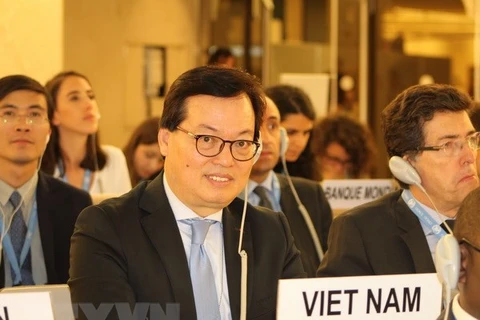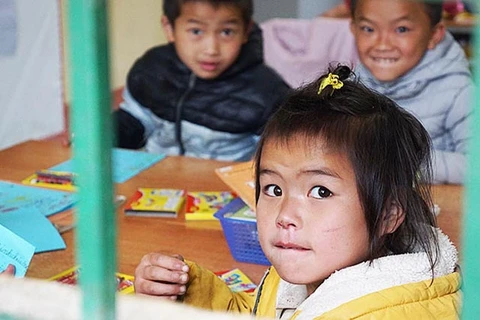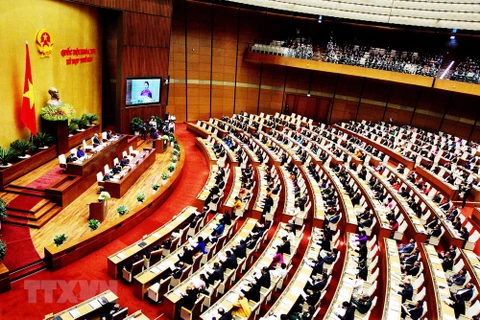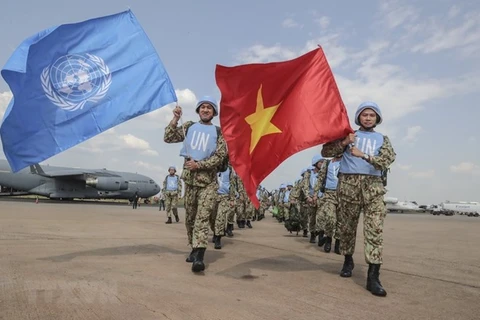 Nguyen Manh Cuong, head of MoLISA’s Department of International Cooperation (Source: http://baodansinh.vn)
Nguyen Manh Cuong, head of MoLISA’s Department of International Cooperation (Source: http://baodansinh.vn) Hanoi (VNA) – The Ministry of Labour, Invalids, and Social Affairs (MoLISA) held a conference in Hanoi on November 9 to discuss progress in human rights work during 2018 and the implementation of relevant recommendations in line with the second cycle of the Universal Periodic Review (UPR).
Nguyen Manh Cuong, head of MoLISA’s Department of International Cooperation, said that the ministry hopes to listen to opinions, feedback, and proposals from agencies and organisations specialising in labour rights and rights of vulnerable groups, towards completing a national report for the third cycle of the UPR in Geneva, Switzerland in January 2019.
The ideas will also help the ministry better ensure and promote human rights in the future, he said.
Delegates highlighted Vietnam’s efforts in completing policies and a legal system to fulfil international commitments in human rights.
After 18 years of issuing a directive on human rights, the Party Central Committee’s Secretariat has released Directive No.44-CT/TW on human rights in the new context. The Government also issued a decision promptly afterwards on plans to implement the directive effectively.
Vietnam is on its way to institutionalising the 2013 Constitution, in which many human rights are enshrined, while also negotiating, signing, and ratifying a range of new generation free trade agreements with high commitments in labour rights.
Together with other regional countries, Vietnam has actively integrated human rights in all pillars of the ASEAN Community, they noted, adding that Vietnam has also seen practical progress in bilateral dialogue and cooperation in issues related to human rights.
UN members, including Vietnam, are working to make national reports ahead of the third cycle of the UPR.
Over the past few years, the MoLISA has launched 44 out of the 182 recommendations in seven areas, including raising awareness of human rights; considering and ratifying international conventions regarding human rights; implementing international obligations on human rights; and completing a legal system on human rights.
So far, Vietnam has implemented all the 182 recommendations of the UPR.
The country has showed strong commitments to strengthening practical dialogue and effective cooperation with all countries and UN mechanisms on human rights on the basis of equality and respect to international law, not interfering with the domestic affairs of other states, and ultimately bringing about practical benefits and strengthening people’s enjoyment of human rights.
Vietnam’s top priority is to build a law-governed State and promote judicial reform to reinforce the foundation of institutions and policies related to human rights observation and promotion. The country has also pledged to strengthen sustainable development, ensure rights to education, and enhance education on human rights.
The UPR is an inter-governmental mechanism of the UN Human Rights Council with the aim of reviewing issues related to the human rights of all UN member countries. Vietnam first implemented the UPR in May 2009. –VNA
VNA























